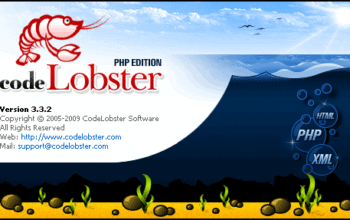The coolest career in the modern era is undoubtedly data science. In the rising world of technology, everybody has major concerns that “big data” must address. There is indeed a seemingly endless amount of data that can be categorized, interpreted, and implemented for a wide range of purposes, from corporations to non-profit organizations to government agencies. If you are among those individuals who want to work on data and become a Data Scientist, then continue reading this article.
However, finding the correct solutions can be a serious challenge. How does a company sort in order to build a marketing campaign by buying data? How do government agencies use activity patterns to build group events that are stimulating? How does a non-profit make the best use of its available advertising budget to further develop its future activities?
The answer is data science.
As there is literally quite enough data to be processed and used by the common man, data scientists are qualified to capture, organize, and interpret data, benefiting individuals from every part of the field and every portion of the population.
Data scientists increase the diversity of perspectives in training, but most of them would get some kind of professional schooling. A broad variety of IT-related majors are included in data science programs, but they may also include mathematics and statistics fields. There is also standard training in business or human conduct, which supports more precise conclusions in their research.
There is an almost infinite quantity of knowledge, and data scientists have an almost infinite quantity of uses. If you are fascinated by this thrilling work, then let us look more closely at the job itself. Start exploring what they are doing, who are they serving, and what talents they need to accomplish the project objectives.
What is a Data Scientist?
Data science is a dynamic and sometimes challenging area, and it requires hundreds of different abilities that make it a daily challenge to define the discipline.
Basically, anyone who collects and analyses with the intention of making judgments is a data scientist. Via several different methods, they do this. In a visual sense, which is also called visualizing the data, they will show the data, enabling a user to search for specific patterns which would not be visible if the data was displayed on a graph in actual figures. They also develop highly sophisticated algos that are used to identify trends and take the knowledge to one that can be beneficial for an organization or corporation from a huge pile of statistics and numbers. At its heart, the practice of searching for significance in mass quantities of data is data science.
4 Ways to Become a Data Scientist
Below are a few ways to become a data scientist:
- Getting a bachelor’s or master’s degree in computer science, data, IT, math, stats, or physics.
- Enrolling in a data science certification training or a bootcamp program.
- Gaining experience in the sector in which you expect to work such as military, healthcare, business, banking, or physics.
- Learning yourself.
Educational Pre-requisites for Data Scientists
There are several pathways to become a data scientist, but without a bachelor’s degree, it is absolutely difficult to start a professional career with all practical purposes. You would need at least a bachelor’s degree. That being said, remember that 73% of the experts employed in the field have a university degree and 27% get a PhD. You would have to receive either a graduate degree or a master’s degree if your aim is an established leadership role.
Some universities offer degrees in data science, which is an intelligent strategy. This program will gain the skills required to process and interpret a complicated collection of data, and will provide a range of technical data relating to statistics, computers, methodological approaches, and much more. Many data science programs will have a critical and technical aspect that will enable you to make conclusions about judgement on the basis of your analysis.
If you want to take a relatively shorter yet effective path then enrolling yourself I a reputed data science bootcamp on training classes online can also help. Data science bootcamp on training classes online can also help or solving real-world problems and projects of data science.
Career Path for Data Scientists
Although you might have the core skills to be a data scientist directly out of graduation, before they become experts in their careers, it is not unusual for individuals to need a little on the job training. This training mostly focuses on the particular programs and organizational system, but can include leading technologies which are not learned in university.
The data science field is an ever-changing environment, so individuals entering the profession need to continuously upgrade their skills. They are continuously being prepared to remain at the forefront of technology and information.
Average Salary for Data Scientists
According to the Glassdoor report, the average salary average of a data scientist is $113K/annum while based on the PayScale findings, it is estimated to be around $93K/annum.
Job Outlook for Data Scientists
The job security in the field of data science is dependent on the ability to continuous learn. A data scientist will not only receive a salary well above the state median, but also anticipate the business to continue to expand in the next decade. The importance of data scientists is far higher than the national average. This is the main reasons, the percentage of people interested in data science has grown tremendously over the past few years.
More Data Science Related Careers
There are several occupations which are either divisions of data science or role enhancements. A professional data scientist is one of the positions you can transition into throughout your employment. Using their education and specific skills, these experts will develop new and creative methods, lead teams in data science, and create new models and frameworks to evaluate data and draw conclusions. An elevated career path of Data Scientist can be big data analysis, software engineering, data architecture, blockchain, cryptography, and more.



